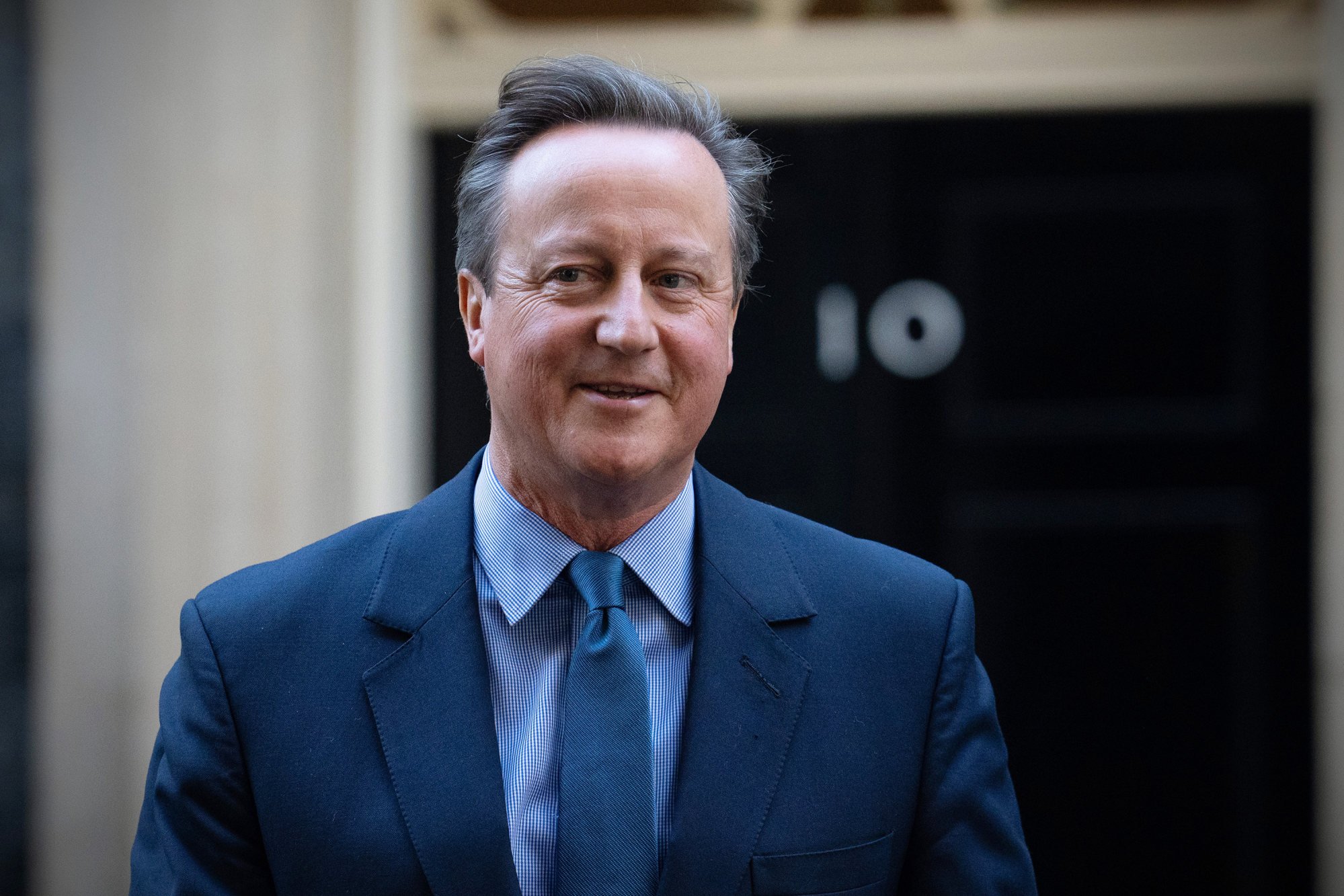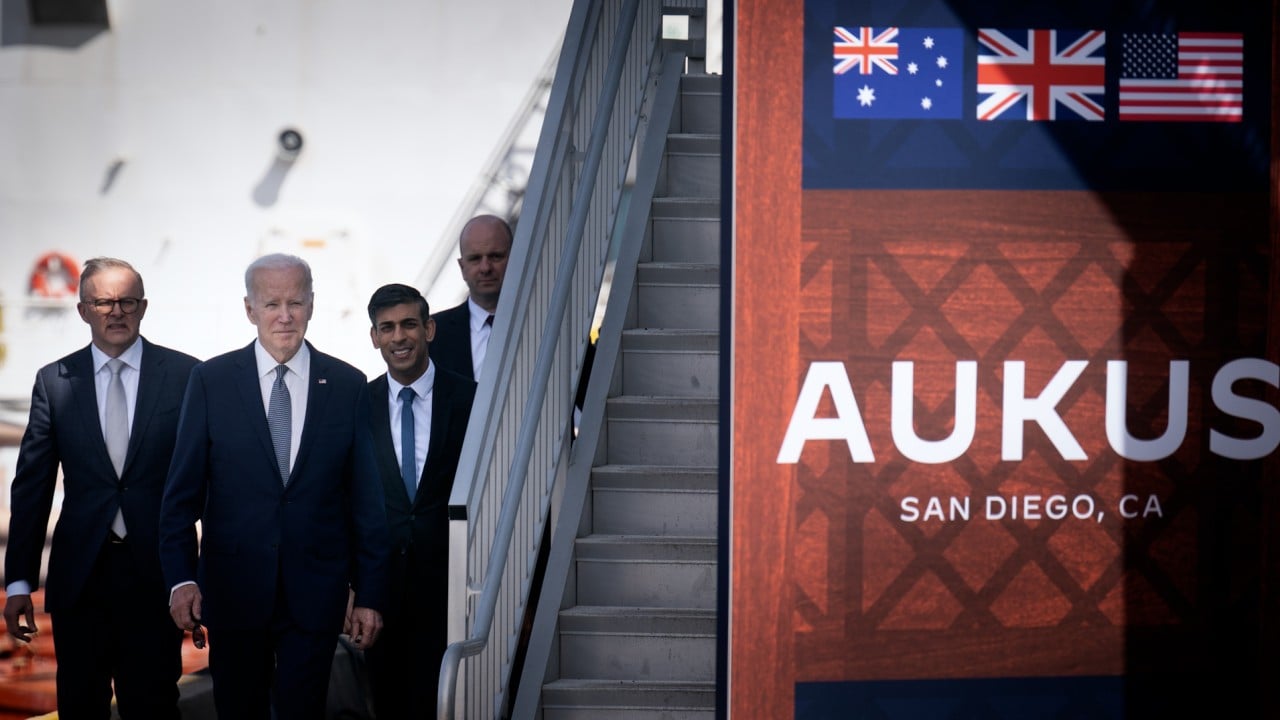
Can new UK foreign secretary David Cameron put China ‘golden era’ behind him to keep with modern British policy?
- Cameron’s six years as prime minister coincided with a remarkable thaw in Sino-British relations but times have changed, say geopolitics analysts
- His appointment is a retrograde step say activists who do not want the UK to soften its approach to Beijing
But experts say while he may have experience and a record of Beijing-friendly foreign policy, Cameron faces an immensely different geopolitical environment around the bilateral ties he left in 2016, and he would need to prove he is up to date on London’s strategy.
On Monday, Cameron replaced James Cleverly, who is now home secretary, with the outgoing Suella Braverman a high-profile casualty of a dramatic cabinet reshuffle on Monday morning. Braverman stoked controversy by criticising a Metropolitan Police decision to permit a pro-Palestinian march on Armistice Day on November 11.
His six years as prime minister coincided with a remarkable thaw in Sino-British relations. Along with former chancellor George Osborne, Cameron championed Chinese investments in the country and brokered closer political ties with China following Xi Jinping’s ascendancy to the presidency in 2013.
“This visit marks the start of a new era. Some have called it a golden era in relations between Britain and China, an era of stronger economic ties, deeper trade links, closer relations between our peoples and meaningful dialogue on the issues that matter to us both,” Cameron said at the time.

But he takes the reins of the foreign office in a completely new era of international relations. Under subsequent prime ministers, Sino-British ties plunged to successive lows. These days, the iconic photograph of Xi and Cameron supping ale is often invoked to illustrate how quickly things turned sour.
“David Cameron will find Parliament has changed a lot when it comes to China,” Alicia Kearns, Tory chair of the Foreign Affairs Select Committee, told Bloomberg. “Relations with China are our foremost challenge, and he is going to have quite a challenge getting foreign policy into the place where it needs to be going forward.”
The countries clashed frequently during the crackdown on Hong Kong’s protest movement and over China’s alleged abuses of human rights in Xinjiang. On these issues, a vocal Tory backbench has pushed the party to take a more assertive approach to Beijing.
Cameron will be under pressure to ensure that his views have evolved since he left government seven years ago.
“The new foreign secretary is going to have to make a bold intervention pretty soon to personally renounce the golden era, endorse the integrated review framework and show he understands the full scope of the security risks we face from China. Vital to audiences at home and abroad,” said Sophia Gaston, head of foreign policy at the think tank Policy Exchange.
Explainer: China ‘challenge’ and other key points in UK’s updated foreign policy review
Sam Hogg the author of the weekly intelligence newsletter Beijing to Britain, said the move “will be seen by certain pockets of Westminster as a return to golden-era politics” at a time when the current British approach of “protect, align, engage, was brought about as part of the ill-conceived elements of that approach”.
“It’s going to be interesting to watch the government square away bringing back its architect into a cabinet that has a fundamentally different approach now,” he said.
“There are good reasons to bring back someone of his experience,” said one diplomat, speaking on condition of anonymity. “The world’s a messy place right now, and having a decent foreign secretary feels important. In terms of China, though, nothing changes – the integrated review refresh is our China policy.”
Even in his absence from frontbench politics, however, Cameron’s business dealings with Chinese entities have drawn criticism from more hawkish voices in British politics. On this front, questions will continue to be raised.
The British Parliament’s Intelligence and Security Committee (ISC) found this year that Cameron’s appointment as vice-chair of the fund was “in part engineered by the Chinese state”.
Last month, Politico reported that Cameron had flown to Sri Lanka and Middle Eastern cities to try to convince foreign investors to pump money into the Colombo Port City project – a major node in China’s Belt and Road Initiative.
“There will be significant scrutiny around Cameron’s work on China post-Downing Street over the past couple of years,” Hogg said.
Rahima Mahmut, one of Britain’s most prominent Uygur activists who has helped put the issue of Xinjiang on the political radar, said the Conservative Party “have been steadfast supporters of Uygurs yet David Cameron has spent the last few years lobbying for [Chinese Communist Party] interests”.
“We will be looking for an immediate indication that this does not represent a softening of Conservative policy towards China,” Mahmut said.
David Cameron came to power as ‘heir to Blair’ and both men will be defined by one historic error
“Incomprehensible, retrograde appointment. Cameron is out of step with Parliament and the country on China. Look forward to @David_Cameron declaring exactly how much he has been paid to represent Beijing’s interests since leaving Number 10,” tweeted Luke de Pulford, the convenor of the Inter-Parliamentary Alliance on China, a pressure group.



